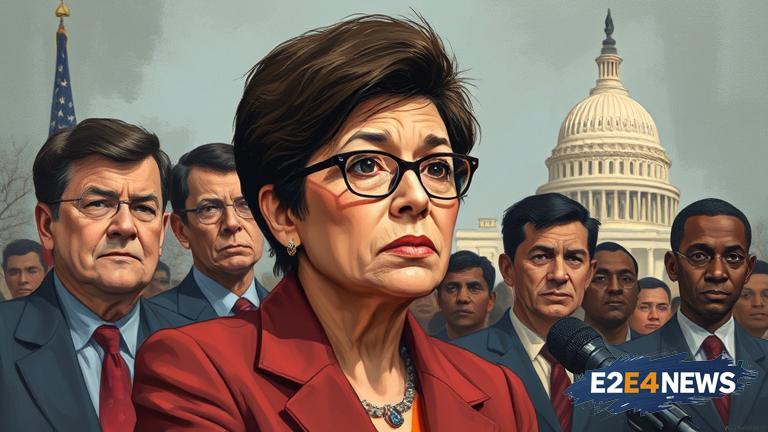The newly appointed top prosecutor in Washington D.C., Pirro, has unveiled a plan to prosecute some 12-year-olds as adults, a move that has sparked intense debate and criticism from juvenile justice advocates and lawmakers. The proposal, which aims to address rising crime rates in the city, has been met with concerns about the potential long-term consequences for young offenders. Pirro’s plan would allow for the prosecution of minors as adults in certain cases, such as violent crimes or repeat offenses. However, critics argue that this approach would undermine the principles of juvenile justice, which prioritize rehabilitation and restorative justice over punishment. They point out that children as young as 12 are still developing cognitively and emotionally, and that treating them as adults would be unfair and potentially damaging. Moreover, research has shown that prosecuting minors as adults can lead to higher recidivism rates and poorer outcomes for young offenders. The plan has also raised concerns about racial disparities in the justice system, as African American youth are already disproportionately represented in the juvenile justice system. Lawmakers and advocates are calling for a more nuanced approach that takes into account the unique needs and circumstances of young offenders. They argue that the focus should be on providing support and resources to help young people get back on track, rather than simply punishing them. The controversy surrounding Pirro’s plan has highlighted the need for a more comprehensive and evidence-based approach to addressing juvenile crime in Washington D.C. This approach should prioritize prevention, intervention, and rehabilitation, rather than relying solely on punishment and prosecution. Furthermore, it is essential to consider the potential consequences of prosecuting minors as adults, including the impact on their future prospects and the potential for long-term damage to their mental and emotional well-being. The debate over Pirro’s plan has also sparked a broader conversation about the role of prosecutors in addressing juvenile crime and the need for more effective and sustainable solutions. As the city grapples with the challenges of juvenile justice, it is clear that a more thoughtful and multifaceted approach is needed, one that balances the need for public safety with the need to support and rehabilitate young offenders. The plan has been met with opposition from various groups, including the American Civil Liberties Union (ACLU) and the National Association of Social Workers (NASW). These organizations argue that prosecuting minors as adults would be a step backwards for juvenile justice in Washington D.C. and would undermine the progress that has been made in recent years to reform the system. In addition, the plan has raised concerns about the potential impact on the city’s budget, as prosecuting minors as adults would likely require significant additional resources. The controversy surrounding Pirro’s plan has also highlighted the need for greater transparency and accountability in the justice system, particularly when it comes to the treatment of young offenders. Ultimately, the decision to prosecute minors as adults should be made on a case-by-case basis, taking into account the unique circumstances and needs of each individual. By prioritizing rehabilitation and restorative justice, Washington D.C. can work towards creating a more just and equitable system for all young people, regardless of their background or circumstances. The plan has sparked a heated debate about the best way to address juvenile crime in the city, with some arguing that a tougher approach is needed to deter young offenders, while others argue that this approach would be counterproductive and would ultimately harm the community. As the city moves forward, it is essential to consider the potential consequences of Pirro’s plan and to work towards creating a more comprehensive and effective approach to addressing juvenile crime. This approach should prioritize prevention, intervention, and rehabilitation, and should be guided by a commitment to justice, equity, and the well-being of all young people. The plan has also raised concerns about the potential impact on the city’s schools and communities, as prosecuting minors as adults could lead to increased stigma and marginalization of young people. By working together to create a more just and equitable system, Washington D.C. can help to ensure that all young people have the opportunity to thrive and reach their full potential. The controversy surrounding Pirro’s plan has highlighted the need for a more nuanced and multifaceted approach to addressing juvenile crime, one that takes into account the complex needs and circumstances of young offenders. By prioritizing rehabilitation and restorative justice, the city can work towards creating a more just and equitable system for all young people, regardless of their background or circumstances.
